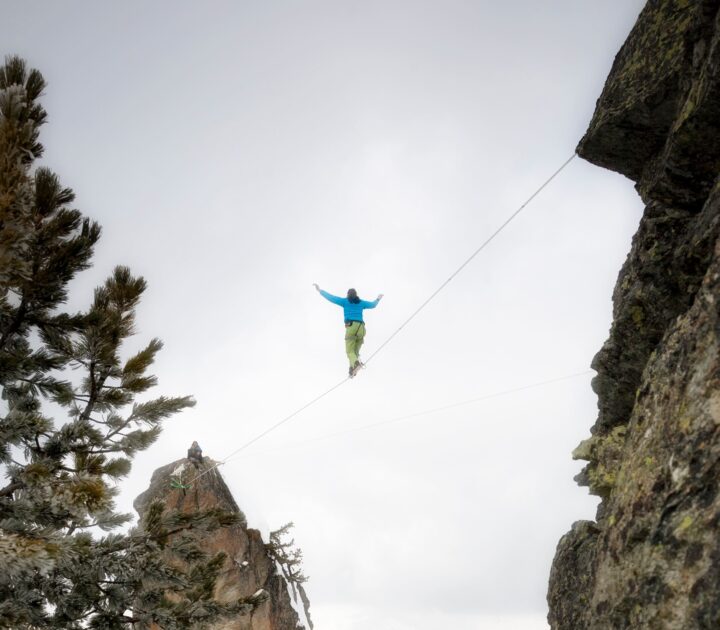Larsens Camp: Crisis in Kenya’s elephant paradise
Rohan Patel was looking at the building site outside the window of his third-floor office in Westlands, the upmarket business district of Nairobi, Kenya. Although the construction work would be finished in a few weeks’ time, it had taken a total of 18 months to complete and was seriously behind schedule. In early 2009, time was definitely money for Rohan’s family firm, Grenadier Limited. The building was to be the first of a chain of contemporary five star hotels catering to the needs of business travelers in urban centers in Africa. The chain would be the latest addition to Grenadier’s portfolio. Rohan hoped it would not be plagued by the occupancy problems that Larsens Camp was experiencing – one of the three properties that made up Wilderness Lodges, the company’s other luxury hospitality business. The tourist trade in Kenya had been hit by the double whammy of political violence followed by the credit crunch and global recession, both of which had been nothing short of disastrous for the hospitality business. The tourism crisis, in turn, led to a renewal of public debate around the sustainable management of Kenya’s natural resources. Some operators saw an opportunity to push for a relaxation of existing rules for establishing hotels and resorts in and around nature reserves, which would create new jobs and increase tax revenues for the state and local councils. However, nature preservationists and environmental NGOs wanted to protect the animal sanctuaries and the local communities that often lost their ancestors’ lands to the nature reserves without getting much in return. In addition to getting the new venture off the ground and taking the risk of stepping on the toes of established players, Rohan needed to tackle these other challenges: How could the group rebuild a value proposition for tourists and restore occupancy rates at Larsens Camp? What was the best way to restructure the company to ensure financial stability? How could it find the proper balance between its business and the environment, thus ensuring the future of its resorts?
The case discusses various issues including social responsibility in the context of a hospitality business in Kenya’s Samburu Nature Reserve; the heritage of the Indian diaspora in East Africa and its business activities and modus operandi; the transition of a third-generation family member who returns from Europe to join the family business; and sustainability management of the family’s sprawling business empire. The case also provides an original setting for the discussion of stakeholder management (the bush).
2008-2009
Cranfield University
Wharley End Beds MK43 0JR, UK
Tel +44 (0)1234 750903
Email [email protected]
Harvard Business School Publishing
60 Harvard Way, Boston MA 02163, USA
Tel (800) 545-7685 Tel (617)-783-7600
Fax (617) 783-7666
Email [email protected]
NUCB Business School
1-3-1 Nishiki Naka
Nagoya Aichi, Japan 460-0003
Tel +81 52 20 38 111
Email [email protected]
IMD retains all proprietary interests in its case studies and notes. Without prior written permission, IMD cases and notes may not be reproduced, used, translated, included in books or other publications, distributed in any form or by any means, stored in a database or in other retrieval systems. For additional copyright information related to case studies, please contact Case Services.
Research Information & Knowledge Hub for additional information on IMD publications
The case study delves into strategic transformation and leadership transitions at Unilever since 2009. Unilever has been an industry leader of busi...
The case study examines recent aviation safety concerns at Boeing, focusing on manufacturing issues, leadership decisions and regulatory oversight....
The case is seen through the eyes of the newly appointed supply chain director at a cosmetics company based in Berlin. The general manager has task...
Few Business to Business (B2B) marketplaces have succeeded. Metalshub has successfully combined a software platform as a service, with a marketplac...
The case focuses on Contabilizei, a Brazilian startup providing online accounting services for small and medium-sized enterprises (SMEs). The case ...

Companies that modularize and externalize their best capabilities are in a strong position to seize unexpected opportunities. Prediction is hard. T...
Research Information & Knowledge Hub for additional information on IMD publications
Research Information & Knowledge Hub for additional information on IMD publications
in I by IMD 24 June 2024
Research Information & Knowledge Hub for additional information on IMD publications
Research Information & Knowledge Hub for additional information on IMD publications
Research Information & Knowledge Hub for additional information on IMD publications
Case reference: IMD-7-2457 ©2024
Research Information & Knowledge Hub for additional information on IMD publications
Case reference: IMD-7-2546 ©2024
Research Information & Knowledge Hub for additional information on IMD publications
Research Information & Knowledge Hub for additional information on IMD publications
in MIT Sloan Management Review Summer 2024, vol. 65, no. 4
Research Information & Knowledge Hub for additional information on IMD publications
Research Information & Knowledge Hub for additional information on IMD publications



